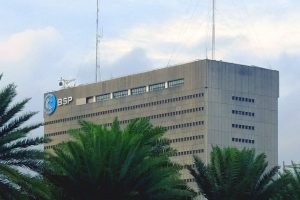Asian central banks told to remain watchful of risks from US turmoil

CENTRAL BANKS in Asia must continue monitoring risks that could arise from the US bank crisis, the Asian Development Bank (ADB) said.
“The recent bank turmoil in the US has awakened ghosts of past financial crises. While the likelihood of a fully fledged crisis seems limited, it cannot be ruled out. Policy makers in the region must act now to shield their economies from possible negative spillovers,” the multilateral lender said in a blog.
“Although the risk that we may be witnessing a period of financial turmoil in the US and Europe that may spill over into developing economies in Asia is currently small, it still warrants attention from policy makers,” it added.
Financial markets across the globe were rattled after the collapse of the Silicon Valley Bank and Signature Bank in the United States, marking one of the biggest banking failures since the 2008 global financial crisis.
On the other hand, Bangko Sentral ng Pilipinas (BSP) Governor Felipe M. Medalla earlier said that Philippine banks do not have exposure to the US bank failures as their foreign currency deposit units’ assets are mostly loans, Philippine dollar bonds and sovereign bonds of countries with high credit ratings, he added.
The ADB said financial issues in advanced economies are easily transmitted to the rest of the world due to contagion fears.
This would lead to dampened investor sentiment, financial institutions withdrawing funds from risky assets, and capital flows shifting away from economies considered more vulnerable.
“Asia would not be immune to these spillovers, which could lead to significant financial market stress and slower growth in the region as well,” it said.
“In addition to the potential impact associated with slower growth, financial turmoil in the US and Europe could also extend to global financial turmoil that brings financial instability or even a fully fledged financial crisis in the region,” it added, noting that these would be most felt by vulnerable groups.
The lender said financial authorities in Asia should ramp up risk monitoring and prepare macroprudential regulations.
“To address short-term liquidity difficulties, regional economies can also rely on local currency swaps, US dollar liquidity through swaps between central banks, and the Chiang Mai Initiative Multilateralization — a regional currency swap arrangement. All these instruments underscore that an internationally coordinated response to periods of financial turmoil has become more important than ever,” it added.
There is also a need to improve macroeconomic stability to retain foreign direct investment.
Economies with high external debts should also “work towards mobilizing more domestic resources and do so more efficiently.”
“For instance, many Asian economies are highly dependent on value added tax revenues, but these are typically relatively low as a share of gross domestic product, owing to various tax exemptions. Reforms aimed at rationalizing value added tax exemptions would boost fiscal revenue and reduce tax distortions,” it said.
The ADB said improved financial sector development will also reduce exposure to external risks.
“For instance, deeper local currency bond markets supported by domestic institutional investors decrease dependency on external borrowing and can channel savings into domestic assets, decreasing currency risk. More liquid currency hedging markets also limit external risk and provide better trade financing,” it said.
“Developing economies in Asia can, therefore, rely on a variety of tools to deal with the potential spillovers from the current financial turmoil. Policy makers in the region should act to strengthen financial systems. A severe crisis, though unlikely, could have significant consequences,” it added. — L.M.J.C. Jocson




